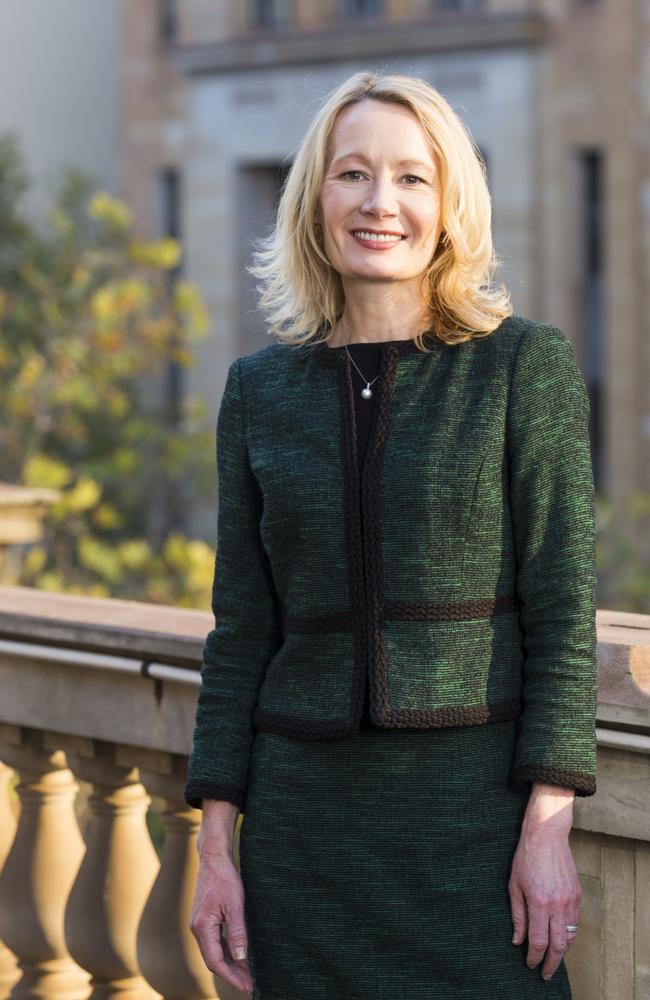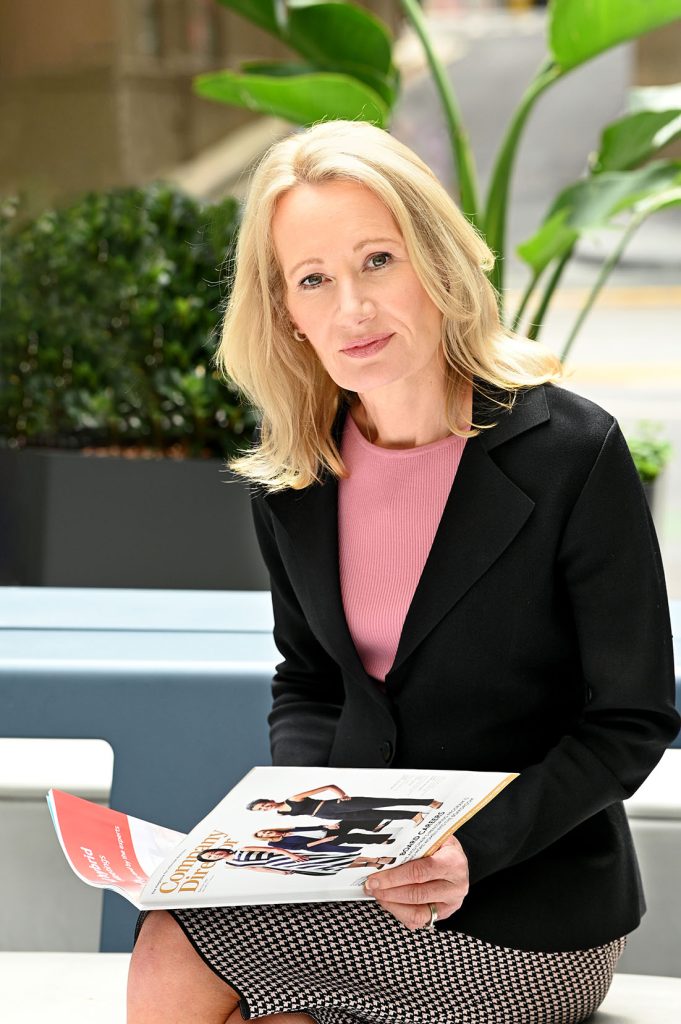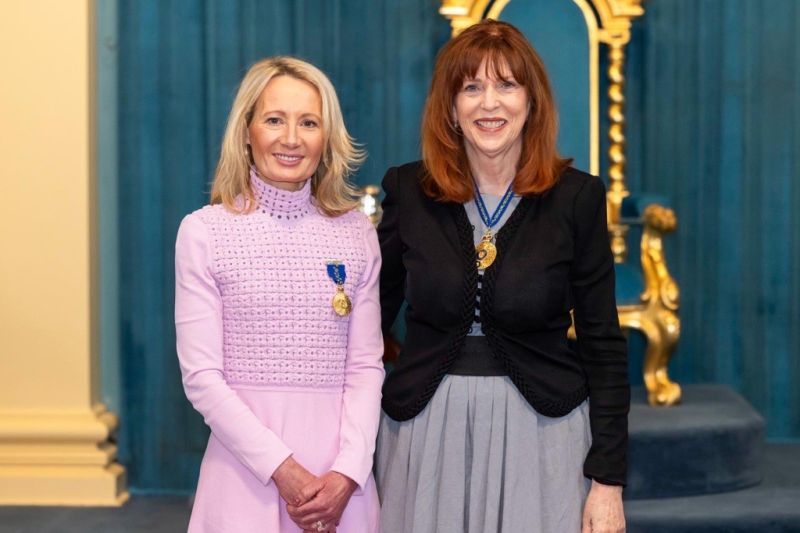Brooker Executive Perspective:
Sharon McGowan, CEO of RANZCP
Sharon McGowan brings a wealth of experience and insight to this Brooker Consulting Executive Perspective. As the former CEO of the Royal Australian and New Zealand College of Psychiatrists (RANZCP), she has played a pivotal role in shaping the future of psychiatric care and medical training. In this conversation, Sharon reflects on the key moments that influenced her career path, from her early days in nursing to leading a major medical college.

Leighton:
Thank you for taking some time to join in a Brooker Executive Perspective conversation. Firstly, I’m curious if you could introduce us to your role and the organisation in which you work?
Sharon: Thanks very much for involving me. My role is the CEO of the Royal Australian and New Zealand College of Psychiatrists (RANZCP). Our College trains future psychiatrists across Australia and New Zealand while supporting the current workforce through professional development, ensuring our psychiatrists remain well-positioned to meet community mental healthcare needs.
Our vision centres on equity and excellence in mental healthcare provision. Equity addresses our challenge of delivering accessible services when and where people need them, while excellence reflects our commitment to high standards of care. We emphasise early intervention and long-term support for people with mental illness, ensuring all care is evidence-based and our practitioners maintain currency through continuing education.
Leighton:
That’s a great summary. If we can switch gears and go back to your earlier career. Was there a pivotal moment or two that helped to shape your career path?
Sharon: Having left school at a young age, I knew I wanted to work in healthcare but wasn’t sure exactly where. Through work experience, I initially considered physiotherapy, imagining myself working with sports teams. However, after spending time in a hospital respiratory ward, I quickly realised it wasn’t for me. I then tried laboratory work but found the repetitive tasks and lack of human interaction unsuitable.
Nursing became my calling, and I trained in the UK, originally planning to return to Ireland – though that never happened. I was fortunate to progress quickly in leadership, becoming a charge nurse at 23. This came through hard work – I was willing to do anything, including split shifts and hands-on care. I also had a natural inclination for improving organisational systems.
A significant shift came when I took a position managing a blood collection clinic, initially just to move out of expensive London. What started as managing three clinics, quickly grew to overseeing 32 within three years. Then came two pivotal moments: first, when offered a promotion I chose to pursue an MBA at Cranfield, one of the UK’s leading business schools, instead of taking the immediate career step. I loved the learning environment and exposure to new ways of thinking.
The second pivotal moment came through a chance meeting with someone from the Australian Blood Service. What began as a simple conversation led to speaking at their conference, and six months later, I was in Australia starting a new career.
My career journey has taught me that success isn’t always about speed – it’s about recognising those ‘sliding doors’ moments and being brave enough to take calculated risks. Being excited about new opportunities, even when they’re scary, has been crucial. Life is for living, and being open to opportunities has led me to where I am today.
Leighton:
How fascinating that saying no to a promotion, which is counter-intuitive, became a key moment in your career. So, fast forward from then to your current role. What elements of the Chief Executive position role do you find the most satisfying?
Sharon: As CEO, I believe in connecting people to our organisation’s vision and purpose. My approach is viewing the organisation as a jigsaw puzzle, where each person holds a crucial piece. When making key decisions, I consider three elements: how it drives our vision, whether we have the capability, and what our stakeholders would think.
Speaking about broader sector challenges, mental health is currently our biggest global challenge, particularly among youth. The combination of the pandemic and social media has created unprecedented anxiety levels in young people. We’re seeing diminished resilience, and the demand for mental health services is growing exponentially. Currently, only one in four Australians can access services when needed.
The key challenge is delivering equitable, accessible services for all. We’re facing significant medical workforce shortages and aging, chronically under-resourced professionals in the public sector, some who are now facing burnout. Our solution is twofold, firstly ensuring that the psychiatry workforce training pipeline can meet future demand equitably. And secondly, building informed multidisciplinary care through collaborations such as the Mental Health Professional Network. We’ve also launched a postgraduate certificate in clinical psychiatry to upskill GPs, recognising they’re crucial for both referrals and ongoing care in the community. The future lies in creating a multi-skilled environment where psychiatrists, GPs, and other healthcare professionals work together to support people living with mental illness effectively.
Leighton:
What do you see as indicators of success, something that is positive and hopeful that you see in this sector?
Sharon: As medical colleges, we play a pivotal role in training specialists after their five-year medical degree and two years as junior medical officers. We’re particularly proud of two key programmes supporting the future psychiatry workforce.
First is our Psychiatry Interest Forum (PIF), now in its 11th year, which engages medical students and junior medical officers. Last year, 72% of our new trainees participated in this programme, meaning they’re coming into their formal psychiatry training program well-informed having already connected with practising psychiatrists through conferences, mentoring, and one-on-one discussions.
Our second significant initiative is our 10-year rural and remote pathway project. This programme aims to train psychiatrists in their local areas. As we have found that when people move to metropolitan areas for training, they rarely return to rural practice. We’re challenging traditional training paradigms through innovative approaches like remote supervision models and new ways to log work experience. Our project is led by champions who truly understand rural challenges – including our project manager in Far North Queensland and an entrepreneurial psychiatrist from WA. They’re constantly thinking outside the box, much like we all had to during the pandemic, to find new ways to deliver training effectively.
Both programmes are supported by the Australian government, with New Zealand recently establishing its own Psychiatry Interest Forum. When I meet these enthusiastic future psychiatrists, I’m always encouraged about our profession’s future – we just need more of them.
Continuing to innovate how and where we deliver training, ongoing education and support for the psychiatry workforce is critical to achieving our vision. Encouraging innovation hubs can help us become more adaptable and open to change. Our key aim is to provide equitable access to specialist services, particularly in remote areas where currently, people of all ages including children often must travel to cities or rely solely on telehealth to access mental health services. Our goal is to have healthcare professionals who are from and part of these communities. This is even more important for our First Nations communities. Our training programmes must be culturally safe, adaptable, and meet people where they are on their journey to becoming a Fellow of the College of Psychiatrists. Enabling First Nations trainees to complete their training in country with community and College support will see us one step closer to closing the gap to better mental health for these priority populations.

Leighton:
If you are to cast your mind forward as you know in the sectors in which you work, what do you see on the horizon? What kind of things may we be facing? What kind of bright shining lights are out there or which upcoming challenges are so important that we need to be creative? And how do we respond to those?
Sharon: There isn’t a single CEO today who isn’t thinking about AI and cybersecurity—these two issues go hand in hand. In medical colleges, it’s not a level playing field; some are ahead in this space, while others are still catching up. But we are training the next generation of psychiatrists— these trainees have grown up with social media and seamless tech—and we need to ensure their learning environment reflects the way they naturally engage with the world. Expecting them to sit written paper exams is an outdated format when they navigate everything else via apps, it feels disconnected from their reality.
For every CEO, the challenge is how to harness technology safely and effectively. AI has huge potential in mental health, particularly in early intervention and support services, but there are also risks. In private practice, for example, AI tools that transcribe sessions and suggest treatment options could be game-changing—but how do we balance opportunity with risk? Understanding the ethical and professional context is critical.
Cybersecurity is another major concern. It’s no longer a question of if an organisation will be hacked, but when. The mindset needs to shift from “What will we do if this happens?” to “What’s our response plan when it happens?” Just like fire drills, organisations should be running cyber breach simulations to test their preparedness. There’s no point in having a response plan saved digitally if, in the event of an attack, you can’t even access it.
For not-for-profits, the challenge is even greater—striking a balance between improving cybersecurity and managing the significant financial investment required to keep up. It’s a tough equation, but one that no organisation can afford to ignore.
Every organisation is still grappling with what the new way of working looks like. The challenge is how to build and maintain a truly connected culture when people spend half their time working from home.
Hybrid work has become the norm, with job applicants now asking “Is it hybrid?” as one of their first questions. The focus needs to shift from “How many days do I have to come in?” to “How many days can I come in?” As leaders, we need to think beyond just the hybrid structure itself and consider the “in-office” experience—what makes people want to be there?
This remains an unsolved challenge for many leaders. Engaging employees, fostering connection, and embedding a purpose-driven culture requires intentional effort. While some organisations may function entirely online, people-driven organisations with people-focused missions need in-person interaction to thrive.

Leighton:
If you were to give advice to someone early in their career who wanted to progress to become a CEO or a leader, what would you advise them?
Sharon: Leadership is a journey, not a destination, and requires a commitment to continuous learning. I never stop seeking knowledge—whether through books, webinars, podcasts, or engaging with new ideas that shape my leadership approach. Thinking critically and exploring different perspectives help me refine my decision-making and adaptability.
One of the most valuable skills a leader can develop is the ability to give and receive feedback. There’s a scale of response, from immediate defensiveness to actively seeking feedback as a tool for self-improvement. I strive for the latter, recognising that constructive feedback is as valuable as praise. The ability to absorb, reflect, and apply feedback fosters both personal and professional growth. It is not easy to do, but nothing worth doing is ever easy so keep trying!
I also believe that a leader must learn when to stay quiet, listen, and be comfortable in silence. We have two ears and one mouth for a reason—effective leadership relies on thoughtful engagement rather than reactionary responses. Mastering the art of feedback can build or break a team, making it one of the most critical leadership skills.
Well, that’s a great note to finish on. Thank you Sharon for taking a moment to be part of the Brooker Consulting Executive Perspective.
– Leighton Cantrill
This interview was recorded at the end of 2024. Sharon has since left her role as CEO at RANZCP to pursue the next phase of her career.